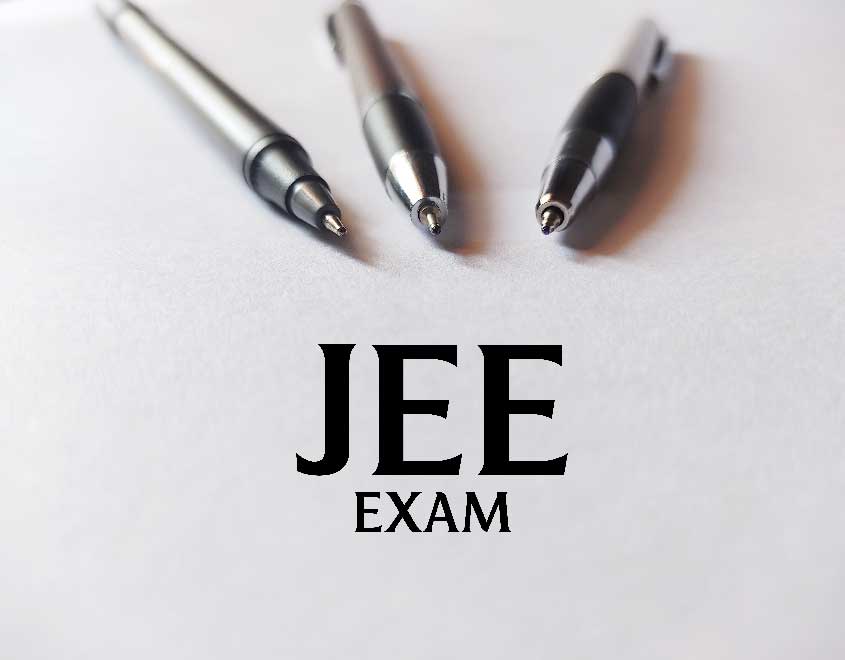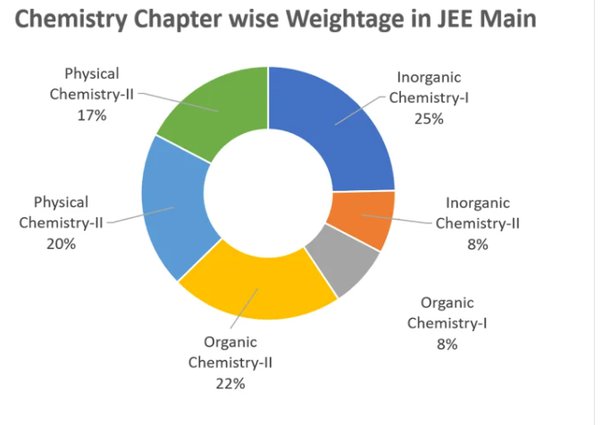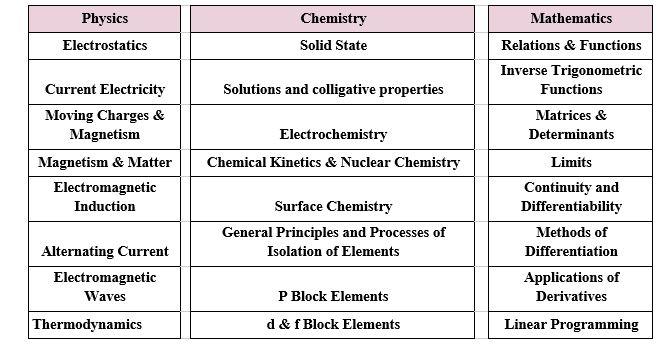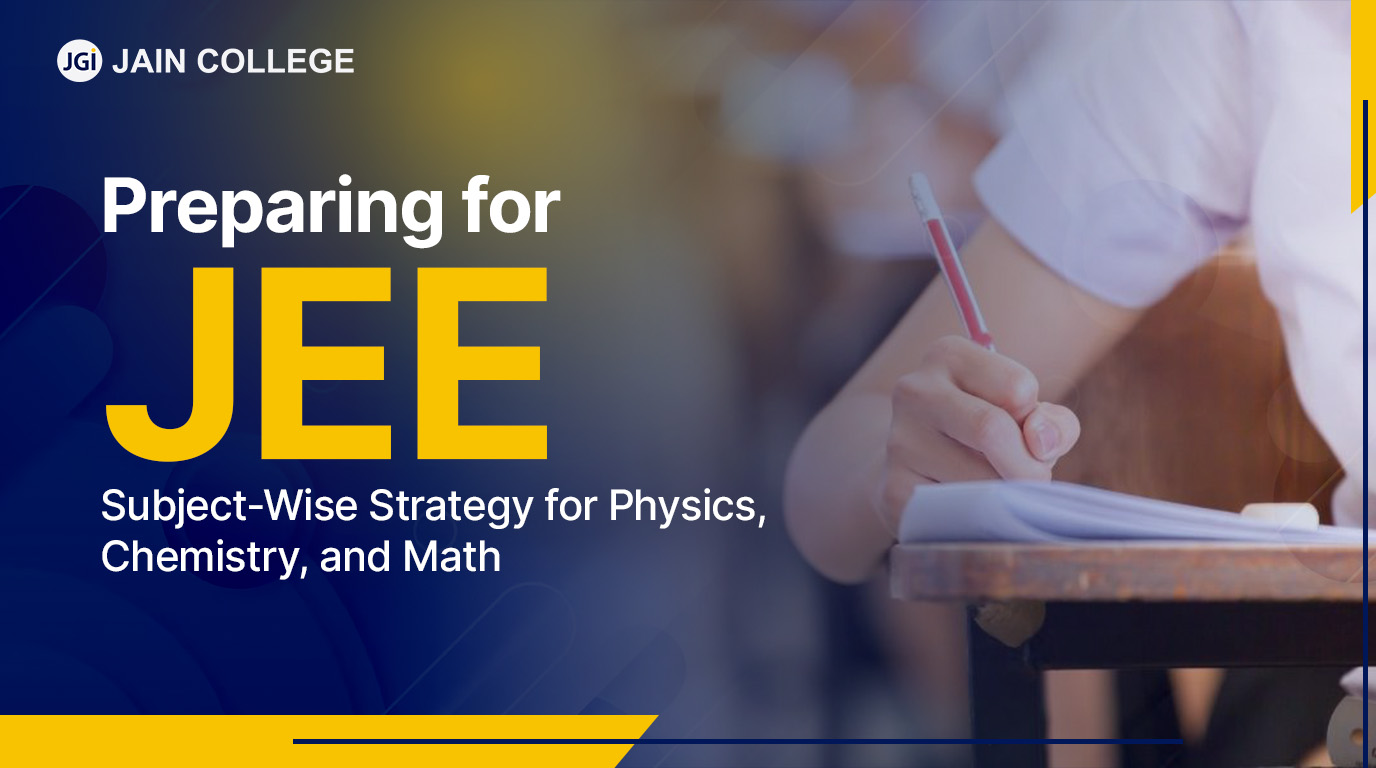Introduction
Physics: Conceptual Clarity is Key
Chemistry: Build a Strong Foundation in Organic, Inorganic, and Physical Chemistry
Mathematics: Practice, Precision, and Persistence
General Tips and subject strategies for All Subjects
Conclusion
Introduction

The Joint Entrance Examination (JEE) is a competitive and challenging entrance exam for aspiring engineers in India. The extensive syllabus is based on three subjects - Physics, Chemistry, and Mathematics. Hence, effective preparation is essential for securing a top rank. In this blog, we will explore a subject-wise strategy to help you streamline your JEE preparation and tackle each subject with confidence.
Physics: Conceptual Clarity is Key

With Physics, understanding the fundamental concepts and applying them to solve problems is central to preparation. To excel in Physics, you must first build a clear understanding of the theories and laws that govern the subject. Here are a few Physics tips to help you:
- Focus on the Basics: JEE Physics has multiple fundamental concepts on which the advanced theories and concepts are built. Spend time on strengthening your understanding of concepts in mechanics, thermodynamics, electromagnetism, optics, and modern physics. Textbooks by H.C. Verma (Concepts of Physics) and I.E. Irodov (Problems in General Physics) are excellent for building conceptual clarity and solving application-based problems.
- Focus on Problem-Solving: Practice as many physics problems as you can, since Physics is largely about applying formulas based on physics theories. As you practice solving physics problems regularly, you will recognise patterns in the types of problems asked in the exam.
- Make a Formula Sheet: An effective tip that most JEE toppers share is to prepare a formula sheet for Physics covering all the formulas and laws. It will help you with quick recall as you understand the derivations and learn how and when to apply each formula.
- Time Management: Physics problems can be lengthy with complex calculations. So, time management is essential for completing the JEE test, practice solving problems within a fixed time limit to improve your speed and accuracy.
Chemistry: Build a Strong Foundation in Organic, Inorganic, and Physical Chemistry

Chemistry is divided into three main branches: Physical Chemistry, Organic Chemistry, and Inorganic Chemistry. Each requires a different approach. Here are a few Chemistry techniques for preparing well in each branch:
1. Physical Chemistry:
- Conceptual clarity: Physical Chemistry has mathematical problems that require strong analytical skills. Topics like Mole Concepts, Thermodynamics, Electrochemistry and Chemical Kinetics are critical. Learn the theories and practice numerical problems extensively.
- Practice Problems: Use books like O.P. Tandon (Physical Chemistry) for a good mix of theory and problem-solving.
2. Organic Chemistry:
- Understand Mechanisms: Study reaction mechanisms, functional groups, and their reactivity. Focus on mechanisms behind reactions and try to avoid rote learning as the JEE questions will test your application and understanding over memorisation.
- Prioritise Important Reactions: Certain reactions are frequently asked in JEE, identify them and become familiar with the important ones like electrophilic substitution, nucleophilic substitution, and rearrangement reactions.
- Revise Regularly: Organic Chemistry is vast, and constant revision is crucial to retaining information. Create a list of reactions and mechanisms and go through them periodically.
3. Inorganic Chemistry:
- Learn the Periodic Table: A strong grasp of the periodic table, including trends in properties like atomic size, ionisation energy, and electronegativity, is fundamental. Inorganic chemistry questions often test your knowledge of these trends and their applications. Here you will have to memorise the important elements and their properties.
- Follow NCERT Textbooks: For Inorganic Chemistry, NCERT textbooks are an excellent resource. Use them for theory and understanding the core concepts and use J.D. Lee for more in-depth study.
Mathematics: Practice, Precision, and Persistence

Mathematics in JEE is often considered the most challenging subject, with a wide range of topics and complex problems. For Math preparation you can consider the following tips:
- Basics matter: Study topics like Algebra, Calculus, Coordinate Geometry, Trigonometry, and Vectors. The basics are as important as the advanced concepts to solve the complex problems in JEE.
- Practice Regularly: Mathematics is all about practice. Solve problems from various sources, including previous year’s papers, mock tests, and standard books like M.L. Khanna (for Algebra), I.A. Maron (for Calculus), and S.L. Loney (for Trigonometry and Coordinate Geometry). There is no limit to how many problems you can solve to prepare for JEE.
- Learn Shortcuts and Tricks: Speed and accuracy are key to solving the JEE paper within the time limit. Learn shortcuts, formulae, and rapid calculation tricks for lengthy calculations or questions that involve repetitive steps.
- Time Management: Practice solving math problems with a stopwatch to improve your speed. Don’t dwell for too long on a single problem. You can circle back to it or leave it unsolved to avoid negative marking.
General Tips and Subject Strategies for All Subjects

- Create a Study Plan: Having a timetable with set study hours for each subject will uncomplicate JEE preps to a great extent. Allocate more time to subjects or topics you find challenging but ensure that you’re covering all the subjects regularly.
- Revision is Key: Regular revision, especially as the exam date approaches is very important. Even as you focus on covering the syllabus, start revising topics that you have finished by going over your notes and practice questions.
- Solve Previous Year Papers and Mock Tests: Take as many mock tests as you can and solve previous years' papers to understand the exam format. This will also help you identify the areas where you need to improve.
- Stay Consistent: JEE preparation is a marathon, not a sprint. Consistency with your studies focus on your goal, and a balanced approach will ensure you aren’t burnt out or stressed.
Conclusion
Preparing for JEE requires a strong subject strategy to ensure that you prepare for each subject correctly. By focusing on conceptual clarity, consistent practice, and effective time management, you can optimise your preparation and improve your chances of success. Stay disciplined, stay focused, and keep pushing yourself toward your goal!

